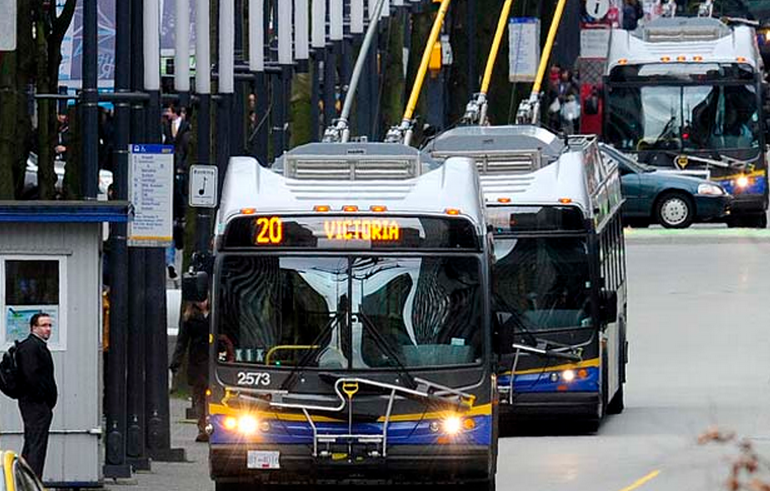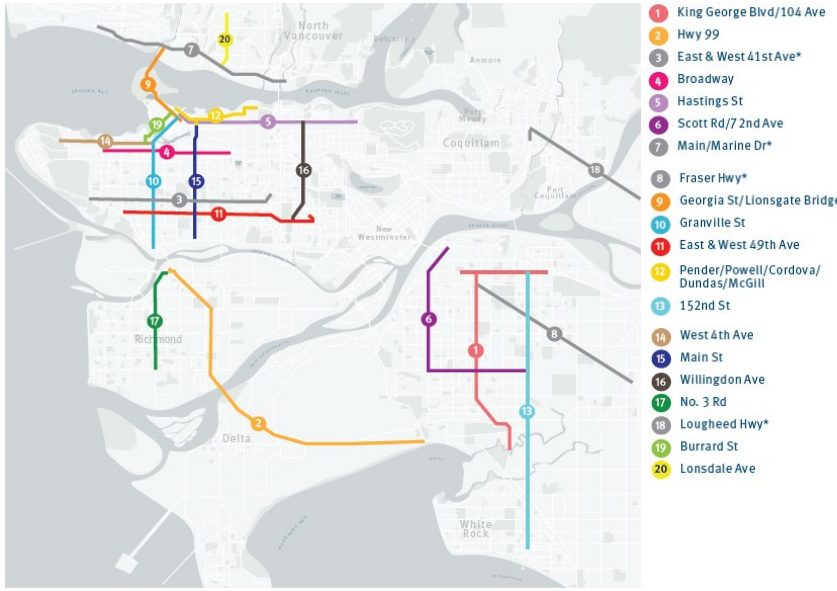If you commute by bus in Metro Vancouver and it feels like your trips are getting longer, you’re not wrong.

TransLink released a new report Monday showing that 80 per cent of the bus routes it operates have gotten slower than they were five years ago, “due in part to increased roadway congestion and lack of sufficient bus priority.”
That slowdown means longer transit times and waits, less reliable travel and increased overcrowding, says the report, noting it reduces the attractiveness of transit as a mode of transportation.
“In some cases there’s only one bus with a few riders on it. Other times, on some of the busiest streets, you have hundreds of people who are affected by that delay,” said Daniel Freeman, TransLink’s senior manager for bus priority programs.

It’s also hurting TransLink’s bottom line.
The agency estimates roadway delays are costing it $75 million per year, with the need to adjust schedules to maintain on-time performance stacking an extra $2.5 to $5 million onto its operating costs every year.
“Delay is found in all sub-regions, a reflection of growth in bus ridership as well as roadway congestion in all communities,” said the report.
The five worst corridors for congestion are King George Boulevard / 104 Avenue, Highway 99, East and West 41st Avenue, Broadway and Hastings streets, the report found.
The report identifies a number of strategies it says are necessary in order to curb congestion for buses and speed up travel times, most of which it says are up to the cities or the province to implement.
“As the transit operator TransLink has control or direct influence over some levers, such as stop location, boarding and fare payment, and route design,” says the report.
“All other levers are under the control of municipalities and the BC Ministry of Transportation and Infrastructure through their authority over roadways.”

- Caught on video: B.C. firefighter survives hit-and-run outside his own home
- Woman acquitted in heated confrontation outside North Vancouver sushi restaurant
- B.C. electric vehicle sales continue to rise as survey finds softening Canadian interest
- B.C. puts up $25M for plant to help boost local milk production
Strategies to improve transit priority include better curb management, new traffic regulations, improved street design and traffic light priority, according to the report.
TransLink says it is also trying solutions in areas where it has control of circumstances, such as introducing all-door boarding on B-Line and RapidBus routes.
The agency says four of the routes with the worst delays will benefit from RapidBus routes rolled out next year.
—With files from Paul Johnson





Comments